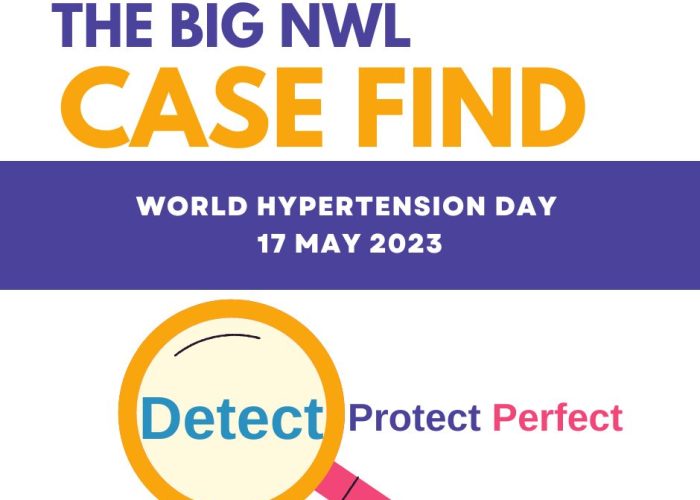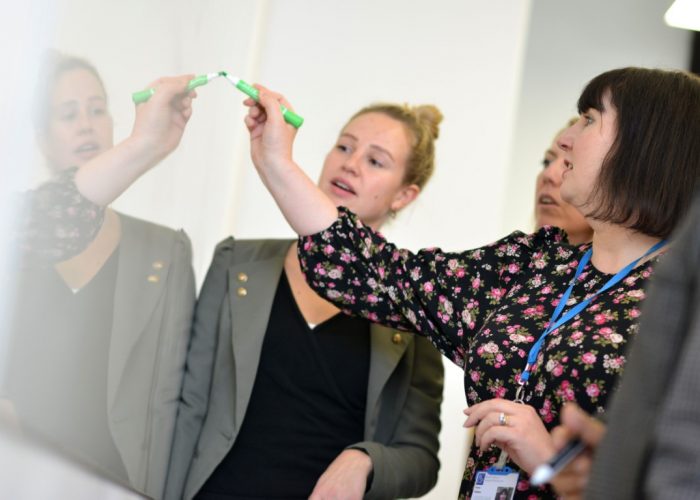 Julia Wilkins, Head of Data and Analytics, recently presented her research on the impact of rare diseases on the NHS to the All Party Parliamentary Group on rare, genetic and undiagnosed conditions.
Julia Wilkins, Head of Data and Analytics, recently presented her research on the impact of rare diseases on the NHS to the All Party Parliamentary Group on rare, genetic and undiagnosed conditions.
Speaking at the All Party Parliamentary Group was an exciting opportunity to share the results of the research I’ve undertaken this year together with healthtech company Mendelian. The invitation came from Genetics UK, which acts as secretariat for the group and thought my work would add something valuable to its hearing on access to medicines in early December.
The event, chaired by Steven Twigg MP and attended by around 50-70 people including MPs and patient groups, looked at issues around the time taken for rare diseases to be diagnosed as well as the process that researchers and manufacturers have to go through to get new medicines for rare diseases licensed for use in the NHS.
My research gave those at the hearing a new insight into the cost and resource impact that the lengthy process of diagnosing rare diseases is having on the NHS – over the last 10 years, rare disease patients during their diagnosis period have cost NHS England in excess of £3.4 billion.
In this period, patients with rare diseases had a higher number of hospital visits and accompanying costs when compared to the general patient population, and their care cost an average of more than twice that of other patients who had a hospital visit – an average individual difference of over £7,000.
However, we believe that the costs our research has identified are only the tip of the iceberg, because routine healthcare data doesn’t yet fully capture the true extent of the thousands of different rare disease classifications. For example, the International Classification of Diseases is believed to only account for approximately five per cent of known rare diseases. This means that the impact of diagnosing rare diseases on the NHS, both in terms of cost and resource utilisation, is most likely considerably larger than our estimate.
The costs aren’t just financial
The cost to the NHS isn’t the only price involved – there’s also the human cost to people with rare diseases, their families and carers in terms of the increased hospital visits and ongoing poor health that impact on their quality of life, and potential delays in receiving new medicines as they work their way through the licensing process.
The next stage of our research will focus on individual diseases rather than looking at them all together, and I made some great contacts with patient groups at the parliamentary hearing, which will be a real help in this work.
Evidence from the real world
People don’t realise the access to data that we’ve got, especially with Discover in London, which links both primary and secondary care data with data from other sources such as social care. The data in Discover is de-identified but we still know a lot about the patients so we can use it to model for bigger populations.
Because rare diseases, by their very nature, affect only a small proportion of the population, it can be very difficult to find the real world data needed for research and analysis. For rare diseases, the more data we have the better, because many drugs aren’t being made available as the real world evidence isn’t there, but we can help with that.
We need more evidence around the burden on the NHS before diagnosis to form part of the evidence base used when deciding on funding for new drugs – allowing us to measure the real world cost of not diagnosing a condition quickly or using the available medicines against the costs and benefits of prescribing the new medicines as they come through.
I believe that following this hearing the group will call for an inquiry, potentially by a Health Select Committee, into how new drugs are approved, the types of evidence that can feed into decisions, and inequality in access across the UK, and I hope we will continue to be a part of that process.
Contact Julia Wilkins, Head of Data and Analytics, for more information.



